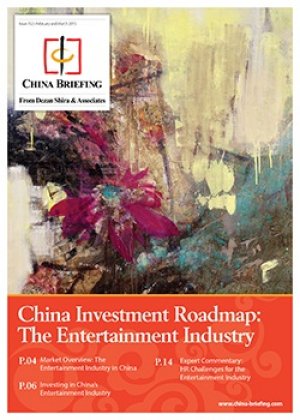E-commerce Brand Protection in China
The internet has become a popular and easy channel for product distribution around the world. It has created a marketplace of more than half a billion users in China, more than a third of the world’s total online population, and is still expanding. Apart from being a forum for legitimate vendors and original products, the internet is also used by businesses as a platform for the distribution of counterfeit goods which infringe intellectual property rights (IPR).
There are many issues specific to the Chinese internet retail environment that international businesses should be aware of. Companies producing intermediate or consumer goods for the Chinese market should safeguard their business via a three-step strategy: (1) registering rights, (2) monitoring e-commerce sites, and, if necessary, (3) requesting take-downs of counterfeit or infringing goods.
Registering your Intellectual Property
Alibaba.com and Taobao are the main online platforms of the e-commerce giant, Alibaba Group. Alibaba.com and Taobao dominate the business-to-business (B2B) and business-to-consumer (B2C) retail platforms respectively. However, both are also being used by businesses for illegal activity, including: trade mark violation and copyright infringement.
![]() RELATED: Trade Fairs in China: Steps to Protect Your IPR
RELATED: Trade Fairs in China: Steps to Protect Your IPR
When registering a trade mark, some useful points to bear in mind:
- China has a first-to-file system, meaning that you may lose legal protection in China if a similar mark has already been registered within China.
- It is equally important to register early, as this process can take up to 18 months and a trade mark can only be protected in China once the registration has been completed.
- China is a member of the Paris Convention and the World Trade Organization (WTO), so European businesses need to file in China within six months of filing of the same mark in Europe.
- It must be available for registration: the China Trade Mark Office’s (CTMO) official trade mark database is available online and can be used to search existing trade marks.
Registering copyright in China:
- Once a work is created, the creator can automatically enjoy copyright protection in all 164 member countries of the Bern Convention for the Protection of Literary and Artistic Works including China.
- Though your work is automatically protected by copyright the moment it is created, voluntary registration will provide proof of ownership, which can save you time and money in case of a dispute later on.
- For copyrights that are particularly important to the livelihood of your business (i.e., website, software, catalogue, customer database, etc.), you should strongly consider registering your copyright.
Monitoring E-commerce Sites
In order to stop infringement as early as possible it is recommended that you proactively monitor the Internet for counterfeits. A good place to start is on Alibaba.com and Taobao who have 700 million users worldwide.
Tips on how to find infringing products online
- Search for names which are identical or similar to your brand or product name.
- Search for your brand or product name in Chinese. Chinese consumers like to translate brand names into Chinese. Where possible ask a Chinese colleague or use a translation tool to search e-commerce sites in Chinese.
- You may also find more results by conducting your search through a Chinese search engine (baidu.com or bing.com).
How to spot a suspicious sale
The following can often be indicators of a counterfeit product or unlicensed sale:
- The listing was made by an individual or company who is not involved in your official distribution channel in China.
- The product is listed several times with a wide variation between prices for each listing.
- The vendor has a large number of units available for sale. Please note that if a vendor offers only one or a few units of a product, it may not constitute an infringement as it is legal to sell ‘second hand’ products or to re-sell original new products.
Requesting Take-downs of Counterfeit or Infringing Goods
Both Alibaba.com and Taobao offer tools for removing infringing products from sale.
Alibaba.com evaluates intellectual property infringement claims filed via AliProtect®. AliProtect® provides an efficient channel for IPR holders to file claims and request take-downs of allegedly infringing listings. In order to proceed you need to complete a free registration, which is available in English. Alibaba.com evaluates IP infringement claims filed and deletes listings on a weekly basis. Often, there will be more than one infringing listing and Alibaba.com admits a maximum of 200 listings per infringement complaint against a single vendor. Before the listing can be removed the alleged vendor will be notified of the complaint through the online system and will have the opportunity to respond to the claim. The vendor will also receive the IPR holder’s contact information to facilitate direct conflict resolution.
![]() RELATED: Choosing Your Trademark Name in China
RELATED: Choosing Your Trademark Name in China
Another popular online platform in China is Taobao, the original B2C arm of the Alibaba group, aimed at domestic users. It operates exclusively in Chinese and only accepts IPR registered in China for take-down notices. It has a sophisticated complaint system which led to 87 million listings being removed and 1 million users being punished in 2012. Taobao’s online complaint system is available only in Chinese but it does provide the option of filing an IPR infringement complaint in English. Additionally, Taobao provides a step-by-step guide in English to using the online system. There is no charge for registration and submission of IPR infringement claims. Taobao may take up to seven working days to process and remove the disputed listing from the website.
Both AliProtect® and Taobao require supplementary documents to be submitted alongside the claim. They generally include:
Identification:
- Individuals should provide a copy of valid ID card (e.g. passport).
- Enterprises should provide a copy of valid business license or incorporation certificate.
- Agents should provide an additional authorisation letter.
Supporting documents:
- Proof of copyright (worldwide) or Chinese registered trade mark or patent (invention patent, utility model, design patent).
- All documents must be in electronic format and must be submitted online.
The Importance of Frequent Monitoring
If these platforms provide a trusted means to certify brands and products as the real deal, Chinese consumers do and will use them. They are more discerning and affluent than ever before and want to display that by buying genuine, not fake, products. This at least should inspire some confidence in European businesses’ thinking about entering China via the Internet, and reassure them that if they take the available steps to show the authenticity of the products they offer, while also monitoring for infringements, more often than not it will pay off.
|
The China IPR SME Helpdesk is a European Union co-funded project that provides free, practical, business advice relating to China IPR to European SMEs. To learn about any aspect of intellectual property rights in China, visit our online portal at www.china-iprhelpdesk.eu. Asia Briefing Ltd. is a subsidiary of Dezan Shira & Associates. Dezan Shira is a specialist foreign direct investment practice, providing corporate establishment, business advisory, tax advisory and compliance, accounting, payroll, due diligence and financial review services to multinationals investing in China, Hong Kong, India, Vietnam, Singapore and the rest of ASEAN. For further information, please email china@dezshira.com or visit www.dezshira.com. Stay up to date with the latest business and investment trends in Asia by subscribing to our complimentary update service featuring news, commentary and regulatory insight. |
![]()
China Investment Roadmap: The Entertainment Industry
In this special edition China Briefing Industry Report, we cast our gaze over the broad landscape of China’s entertainment industry, identifying where the greatest opportunities are to be found and why. Next, we detail some of the most important issues for foreign investors to be aware of, including legal, regulatory, and tax considerations specific to the industry. Lastly, we provide an insider analysis of the sector’s unique HR & payroll challenges.
 Adapting Your China WFOE to Service China’s Consumers
Adapting Your China WFOE to Service China’s Consumers
In this issue of China Briefing Magazine, we look at the challenges posed to manufacturers amidst China’s rising labor costs and stricter environmental regulations. Manufacturing WFOEs in China should adapt by expanding their business scope to include distribution and determine suitable supply chain solutions. In this regard, we will take a look at the opportunities in China’s domestic consumer market and forecast the sectors that are set to boom in the coming years.
 China Retail Industry Report 2014
China Retail Industry Report 2014
In this special edition of China Briefing, we provide an overview of the retail industry in China and the procedures for setting up a retail shop, focusing specifically on brick-and-mortar physical retail stores. Further, we have invited our partner Direct HR to offer some insights on the talent landscape in the retail industry, as well as tips for recruiting retail personnel in China.
- Previous Article Enhanced Legal Protection for Foreign Investors in China
- Next Article Nouvelle loi sur la publicité prévue en Chine

 By:
By: 













